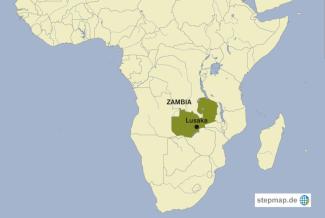Agriculture
Useful insects

Black soldier flies are harmless insects that are attracted to decomposing waste. They can be found in dumping grounds and urban landfills – but also in residential areas with uncollected garbage. Decomposing garbage is a health hazard for humans, not least because it offers a breeding ground for diseases such as cholera and typhoid.
A few Zimbabwean entrepreneurs see a business opportunity in both the decomposing waste and the black soldier flies. By carting away the garbage and putting it in specially-built cages for breeding black soldier flies, they have created an infrastructure for producing a new form of animal feed.
After collecting garbage, the entrepreneurs put it in net-bottomed cages, where it attracts male and female black soldier flies. After mating the flies lay eggs. These fall through holes in the netting into separate cages, where they hatch into maggots – the worm-like, juvenile form of the fly. The maggots are then harvested, mixed with plant-based feeds and sold as feed for fish and poultry.
This process has various benefits. It creates a cheap and protein-rich feed for farm animals, while also helping to solve the problem of uncollected urban waste. Also, removal of garbage from dump sites cuts down on methane and carbon dioxide emissions produced by decomposing waste. Both carbon dioxide and methane are greenhouse gases that worsen climate change.
One of Zimbabwe’s new black soldier fly entrepreneurs is Killian Ruzande, whose main business is raising fish at Eden Urban Farm in Waterfalls, on the outskirts of Harare. He began farming black soldier flies in April 2020 as a way to produce inexpensive feed for his fish-farming business.
“We use waste from garbage dumps nearby and also from our urban farm,” he says. “We are recycling waste into a useful resource while also reducing greenhouse-gas emissions. Once we scale up our operation, we will be able to service the whole community.”
Among the first black soldier fly entrepreneurs in Zimbabwe is Josphat Nyika, based in Bindura, 88 kilometres northeast of Harare. He founded Zim Maggot Producers, a private limited company, in 2019 to sell maggot-based feeds to farmers in Zimbabwe, Malawi, Zambia and Botswana. The firm also sells mature maggots to farmers who use them for breeding black soldier flies.
Black soldier fly maggots are gaining acceptance as a supplemental animal feed, particularly as plant-based feeds such as soya and maize become more expensive, says Paul Zakariya, executive director of the Zimbabwe Farmers Union.
“The cost of feed for poultry farmers is a cause of concern,” he says. “We are now looking at promoting use of insect-based proteins to supplement other feeds. The key is to gather scientific evidence to guide the commercialising of this feed source.”
Farai Shawn Matiashe is a journalist in Mutare, Zimbabwe.
matiashefarai@gmail.com
















